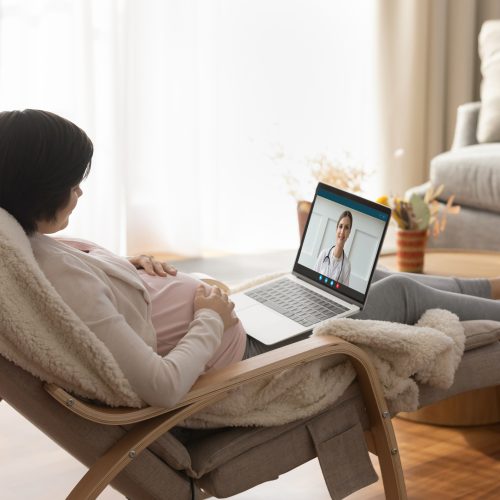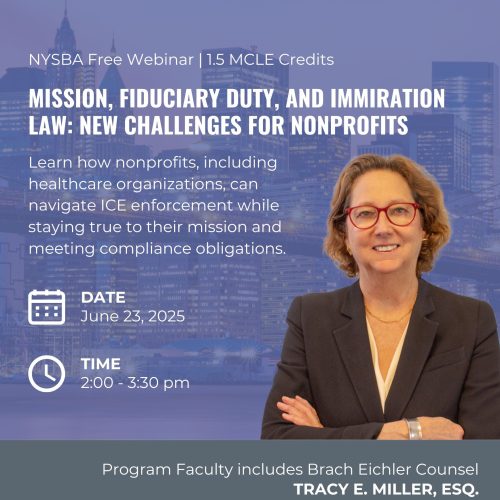Guidance Released Regarding the Resumption of Elective Surgeries and Invasive Procedures Pursuant to Executive Order 145
May 22, 2020
Executive Order 145:
On May 15, 2020, Governor Murphy issued Executive Order 145, which rescinds Executive Order 109 and permits the resumption of elective surgeries and invasive procedures as of 5:00 a.m. on Tuesday May 26, 2020, subject to limitations and precautions set forth in policies issued by the Division of Consumer Affairs and the Department of Health.
Division of Consumer Affairs:
On May 18, 2020, the Division of Consumer Affairs issued an administrative order (the Order) stating healthcare professionals are authorized to provide in-person adult and pediatric medically necessary or therapeutic services in an office (a practice setting, not licensed by DOH) and shall be required to comply, and ensure their staff comply, with the following requirements. Further detail regarding each requirement below is contained within the Order:
- Avoid person-to-person contact in the office.
- Facilitate social distancing within the office.
- Adopt enhanced office cleaning and disinfection.
- Establish rigorous protections for staff.
- Stay informed about developments and obligations; share guidance with patients.
The Order also contains specific requirements for healthcare licensees performing elective surgery or invasive procedures or offering in-person medically necessary or therapeutic services in an office and which involve direct contact with the patient’s face, eyes, or mouth or that present a high risk of contact or aerosolization.
The Department of Health:
On May 19, 2020, the Department issued guidance for ambulatory surgery centers (ASCs) and guidance for hospitals to resume elective surgery and invasive procedures which addresses the following requirements. Further detail regarding each requirement below is contained within the guidance:
Conditions for Hospitals and ASCs to Resume Elective Surgery and Invasive Procedures.
In order to resume elective surgery and invasive procedures, hospitals and ambulatory surgical centers are required to take the following steps to protect the healthcare workforce and patients being served:
- Comply with State and CDC guidelines to protect against further spread of COVID-19;
- Institute screening of staff for symptoms and have policies in place for removal of symptomatic employees;
- Enforce social distancing requirements in work areas and common areas;
- Require masks for patients, except patients receiving services that would not allow for masking, and for any patient support person;
- Have an established plan for cleaning and disinfecting prior to using facilities to serve non-COVID-19 patients;
- Facilities should be prepared to modify resumption of clinical services in conjunction with surge status and to repurpose and redeploy staff to urgent care roles;
- When possible, non-COVID care zones should be used in facilities that serve both COVID-19 and non-COVID-19 patients (for hospitals only); and
- Facilities providing COVID-19 care should continue to be prepared for potential surges. (for hospitals only).
Hospitals and ASCs May Resume Elective Surgeries and Invasive Procedures Based Upon Current or Potential Capacity.
- ASCs can resume procedures based on the below capacity data from the hospital the facility has a transfer agreement with as further detailed in paragraph d. herein.
- Capacity Data: A hospital must have sustained downward trajectory for 14 days, with each day’s data calculated using the average of the three most recent days: (i) Influenza-like illness or COVID-19 like illness; (ii) COVID-19 infection rates; (iii) COVID-19 hospitalizations; (iv) COVID-19 emergency room admissions; (v) COVID-19 ICU, critical care, and medical surgical bed use; (vi) Ventilator use; and (vii) Ventilatory availability.
The Process for Determining the Priority of Types of Services Delivered.
- All cases shall be reviewed by a site-based governance group to ensure consistency.
PPE, Staffing, and Transfer Requirements for Facilities that Resume These Procedures.
- Facilities must have a plan, consistent with CDC and DOH recommendations, for patient and patient support person use of PPE.
- Facilities should implement PPE policies that account for: adequacy of available PPE, staff training on and optimized use of PPE, and policies for conservation of PPE.
- Each ASC must confirm that it has a transfer agreement with an acute healthcare facility partner and confirm and document before each surgery day that its acute healthcare facility partner has an appropriate number of ICU and non-ICU beds to support its potential need for emergent transfers, PPE, ventilators, medications, and trained staff to treat all patients.
Cohorting COVID-19 and NON-COVID-19 Patients.
- ASCs shall not perform procedures on COVID-19 positive patients.
- Hospitals shall cohort COVID-19 and Non-COVID-19 patients.
Requirements that Patients Seeking Procedures Must Undergo Testing, Self-Quarantine, and Other Preventative Measures.
- Scheduling must be coordinated to promote social distancing.
- Facilities must test (specimen collected and result received) each patient within a 96-hour maximum before a scheduled procedure with a preoperative COVID-19 RT-PCR test and ensure COVID-19 negative status.
- Facilities shall counsel patients to self-quarantine following testing and up until the day of surgery.
- Facilities must have a process to screen patients for COVID-19-related symptoms prior to scheduled procedures and to ensure the patient has worn a mask, social quarantined, and social distanced since testing.
Policies Surrounding Visitors and the Discharge of Patients.
- Pediatric patients may have one parent or guardian, same day surgery or procedure patients may have one support person, outpatients may be accompanied by one adult. Except as mentioned above or in waivers from DOH, no visitors will be allowed.
Reporting Metrics Regarding the Resumption of These Procedures.
- Facilities must: (i) comply with Governor Murphy’s Executive Order 111 concerning reporting of data, including PPE inventory on a daily basis; and (ii) report case load on a weekly basis through the same NJHA portal.
If you have any questions about this alert or any other healthcare law issue, please contact:
John D. Fanburg, Managing Member and Chair, Healthcare Law, at 973-403-3107 or jfanburg@bracheichler.com
Joseph M. Gorrell, Member, Healthcare Law, at 973-403-3112 or jgorrell@bracheichler.com
Carol Grelecki, Member, Healthcare Law, at 973-403-3140 or cgrelecki@bracheichler.com
Cynthia J. Liba, Associate, Healthcare Law, at 973-403-3106 or cliba@bracheichler.com
Related Practices: Healthcare Law
Related Attorney: John D. Fanburg, Joseph M. Gorrell, Carol Grelecki, Cynthia J. Liba












